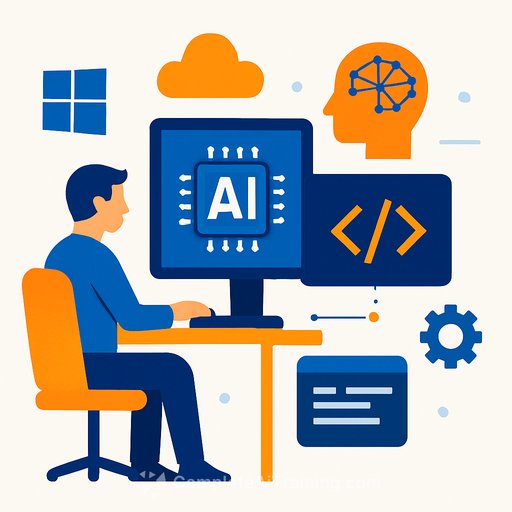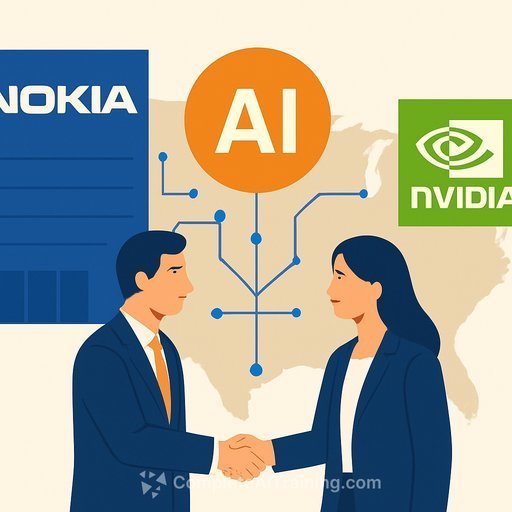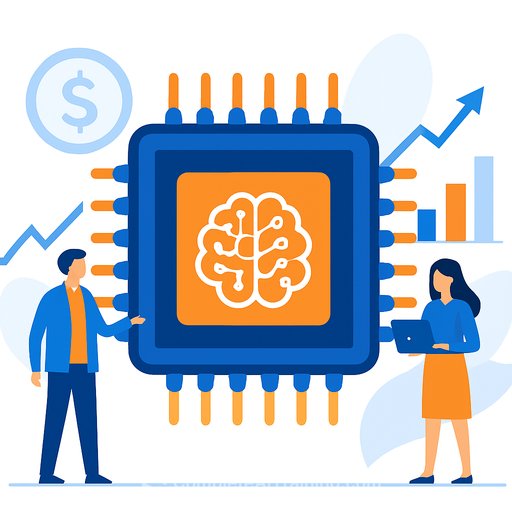Advancing Windows for AI Development: New Platform Capabilities and Tools from Build 2025
Microsoft is focusing on making Windows the premier platform for AI development. The vision is clear: integrate intelligence across software, silicon, and hardware, while keeping Windows open and flexible for developers. This year’s Build conference introduced updates that enhance Windows from client devices to cloud environments, supporting a wide range of AI and IT workflows with a security-first approach.
Windows AI Foundry: A Unified AI Development Platform
Windows AI Foundry builds on the Windows Copilot Runtime to provide a unified platform that supports the AI lifecycle—from model selection and optimization to fine-tuning and deployment across client and cloud.
- Windows ML serves as the core AI inferencing runtime on Windows. It enables developers to deploy their own models efficiently across CPUs, GPUs, and NPUs from partners like AMD, Intel, NVIDIA, and Qualcomm.
- Foundry Local and integrated model catalogs such as Ollama and NVIDIA NIMs give developers quick access to a variety of optimized open-source models tailored for Windows hardware.
- Ready-to-use AI APIs powered by Windows inbox models on Copilot+ PCs handle tasks like text intelligence, image description, and object removal.
New features include LoRA (low-rank adaptation) for fine-tuning the built-in large language model Phi Silica with custom data, and APIs for semantic search and knowledge retrieval to build natural language search and retrieval-augmented generation (RAG) scenarios.
Evolving Windows 11 with Model Context Protocol (MCP)
Windows 11 is gaining native support for MCP, a standardized framework that allows AI agents to connect with native Windows applications. This enables seamless interaction where apps can expose specific functionality to enhance agent capabilities. The feature will start as a private developer preview with select partners.
App Actions on Windows: Boosting Discoverability
App Actions allow developers to create feature-specific actions that increase app discoverability and open new entry points for users. Early adopters include Zoom, Filmora, Goodnotes, and Todoist, which are already integrating this capability to enhance user engagement.
Enhanced Security Features
- VBS Enclave SDK (Preview): Offers a Trusted Execution Environment for secure computations, protecting data even from malicious administrators. It simplifies enclave programming with tools that handle memory management and safety checks.
- Post-quantum cryptography (PQC) is being introduced to Windows Insiders and Linux, preparing for security challenges posed by quantum computing advancements.
Open Sourcing Windows Subsystem for Linux (WSL)
Microsoft is inviting developers to contribute to WSL, aiming for tighter integration and customization of Linux on Windows.
Updates to Developer Tools and Microsoft Store Growth Features
Popular tools like Terminal, WinGet, and PowerToys have received improvements to boost developer productivity. The Microsoft Store now offers free developer registration, Web Installer support for Win32 apps, analytics reports, and an App Campaign program to help developers grow user acquisition and engagement.
Deep Dive into Windows AI Foundry
Windows AI Foundry addresses varying developer needs, whether using off-the-shelf models or deploying custom-built AI.
Access to Open-Source Models Made Easy
Foundry Local provides a curated catalog of optimized open-source models that automatically adapt to the device’s hardware. Developers can install Foundry Local via WinGet and use the CLI or SDK to browse, test, and integrate models directly into their apps. This capability will soon be embedded in Windows 11 and the Windows App SDK for streamlined production use.
Windows ML: Efficient On-Device AI Inferencing
Windows ML is a high-performance local inference runtime that simplifies shipping AI applications by managing hardware execution providers and drivers automatically. It adapts to new AI hardware generations without extra developer effort and includes tools for model conversion, quantization, and optimization—all accessible through the AI Toolkit for VS Code.
Several major silicon partners and app developers, including Adobe and Wondershare, are already leveraging Windows ML for optimized AI deployment.
Ready-to-Use AI APIs for Quick Integration
Developers can integrate AI-powered capabilities like text summarization, OCR, image super-resolution, and segmentation through stable APIs in the Windows App SDK 1.7.2 release. These APIs run locally, offering privacy and performance benefits especially on Copilot+ PCs. Early adopters include Filmora, Pieces for Developers, and iQIYI.
LoRA Support for Fine-Tuning Phi Silica
LoRA enables efficient fine-tuning by updating only a subset of model parameters, improving task-specific performance without compromising overall model integrity. Available now in public preview on Snapdragon X Series NPUs, it will soon expand to Intel and AMD Copilot+ PCs. Developers can experiment with LoRA via the Windows App SDK 1.8 Experimental 2 and the AI Toolkit for VS Code with Azure integration.
Semantic Search and Knowledge Retrieval APIs
New APIs enable developers to build natural language search experiences powered by semantic and lexical search techniques. These APIs run locally to ensure privacy and are optimized for premium performance on Copilot+ PCs. They also support retrieval-augmented generation (RAG) to ground large language model outputs with custom data. Early access is available via a private preview program.
Building the Agentic Ecosystem with MCP
The Model Context Protocol on Windows creates a secure, standardized way for AI agents to interact with Windows apps. Key components include:
- MCP Registry for Windows: A secure source for discovering MCP servers installed on a device.
- MCP Servers for Windows: Native Windows features such as the file system and windowing system, as well as app-provided functionalities, exposed as MCP servers.
App Actions are also integrated as MCP servers, extending app capabilities to AI agents.
Microsoft is collaborating with developers like Anthropic, Perplexity, OpenAI, and Figma to build MCP integrations. These partnerships highlight the potential for richer, context-aware AI experiences on Windows.
AI Developer Workstations
High-performance hardware is essential for AI workloads. OEM partners including Dell, HP, and Lenovo offer a range of Windows-based developer workstations tailored for AI tasks. Options vary from the powerful Dell Pro Max Tower for heavy inference and fine-tuning to compact models like the HP Z2 Mini G1a and portable Copilot+ PCs such as the Dell Pro Max 16 Premium and Lenovo P14s/P16s.
Security Remains a Priority
The VBS Enclave SDK enables developers to build secure applications that protect sensitive data from advanced threats. It abstracts complex security operations, allowing developers to focus on core logic while benefiting from hardware-isolated execution.
Post-quantum cryptography is being integrated into Windows and Linux, addressing future security challenges posed by quantum computing. This includes adding PQC algorithms to SymCrypt, Microsoft’s core cryptographic library.
Conclusion
Windows is evolving rapidly to support AI developers with enhanced tools, a unified runtime, and secure infrastructure. The combination of Windows AI Foundry, MCP integration, new app engagement features, and upgraded security capabilities provides a comprehensive environment for building AI-powered applications.
Developers interested in AI development on Windows can find practical resources and training to get started at Complete AI Training.
Your membership also unlocks:





